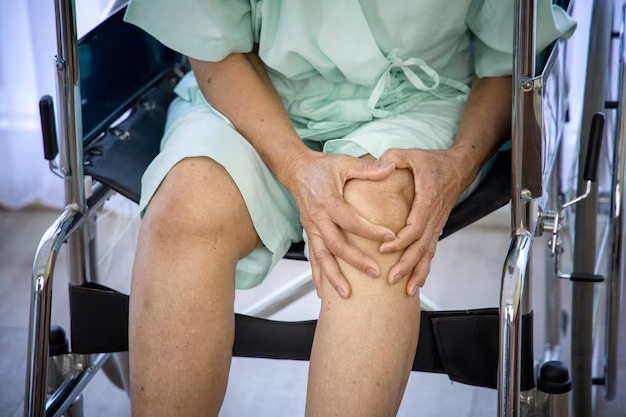Your Guide to Is Restless Leg Syndrome: An Early Sign Of Parkinson's
What You Get:
Free Guide
Free, helpful information about Parkinsons FAQ and related Is Restless Leg Syndrome: An Early Sign Of Parkinson's topics.
Helpful Information
Get clear and easy-to-understand details about Is Restless Leg Syndrome: An Early Sign Of Parkinson's topics and resources.
Personalized Offers
Answer a few optional questions to receive offers or information related to Parkinsons FAQ. The survey is optional and not required to access your free guide.
Could Restless Leg Syndrome Be an Early Warning for Parkinson's?
Do you ever find yourself experiencing an irresistible urge to move your legs, especially at night? This condition, known as Restless Leg Syndrome (RLS), affects an estimated 7% to 10% of the U.S. population. While it is generally seen as a benign disorder, some studies suggest a possible link between RLS and developing Parkinson's disease. Understanding this connection is crucial for both medical professionals and patients alike.
Exploring the Connection
Parkinson’s disease is a progressive neurological disorder primarily affecting movement. Characterized by tremors, stiffness, and slow movement, it emerges when certain neurons allowing smooth and coordinated muscle movements deteriorate. RLS, on the other hand, involves abnormal sensations in the legs and an uncontrollable urge to move them for relief. Some research suggests that both conditions may share underlying pathophysiological features, such as dysfunction in the dopamine pathways, leading to these movement disorders.
A growing body of evidence suggests that individuals with RLS may have a higher risk of developing Parkinson's later in life. However, this doesn't mean everyone with RLS will get Parkinson's. Health care professionals recommend monitoring symptoms closely, as early diagnosis can significantly improve the quality of life.
Managing Symptoms and Planning Ahead
For those with RLS or a Parkinson's diagnosis, effective management can improve lifestyle significantly. Physicians typically recommend:
- Lifestyle Changes: Incorporating regular exercise, maintaining a healthy diet, and reducing caffeine, nicotine, and alcohol intake can alleviate symptoms.
- Medications: Options like dopamine agonists or certain benzodiazepines can help manage symptoms, albeit with caution and professional supervision.
Awareness and proactivity are critical. If you suspect that your RLS symptoms are worsening or if you notice signs of Parkinson's, consider seeking a consultation with a neurologist for a thorough evaluation.
Financial Implications and Assistance
Unfortunately, managing chronic conditions like RLS or Parkinson's can create a financial strain due to ongoing medication, therapies, or assistive devices. Nonetheless, several financial aid programs and resources can help alleviate these concerns:
Empowering Financial Solutions
Navigating a chronic illness can be overwhelming, but various resources and support systems exist. Here’s a handy list that could benefit individuals impacted financially by RLS, Parkinson’s, or similar conditions:
🌟 Government Aid Programs:
- Medicare/Medicaid: Coverage for necessary treatments and medications.
- Social Security Disability Insurance (SSDI): For those unable to work due to their condition.
🏦 Financial Assistance:
- State-specific programs: Often help with medical expenses or providing low-cost insurance.
- Medication assistance programs: Offered by pharmaceutical companies for free or reduced-cost medications.
💳 Credit Solutions:
- Low-interest credit cards: Designed for medical expenses or emergencies.
- Medical loans: For larger health-related costs, offering extended payment options.
🎓 Educational Opportunities:
- Workshops and webinars: On managing chronic conditions and financial implications.
- Online courses: On managing personal finances affected by medical costs or loss of income.
Exploring these options not only aids in managing financial stress but also empowers individuals to focus more on health and well-being. For anyone living with RLS, Parkinson’s, or other chronic conditions, remember that you're not alone—adequate resources and support systems are on hand to help you navigate the path ahead.
What You Get:
Free Parkinsons FAQ Guide
Free, helpful information about Is Restless Leg Syndrome: An Early Sign Of Parkinson's and related resources.

Helpful Information
Get clear, easy-to-understand details about Is Restless Leg Syndrome: An Early Sign Of Parkinson's topics.

Optional Personalized Offers
Answer a few optional questions to see offers or information related to Parkinsons FAQ. Participation is not required to get your free guide.


Discover More
- Are There Environmental Causes Of Parkinsons
- Can Alcohol Cause Parkinson's
- Can Concussions Cause Parkinson's
- Can Concussions Cause Parkinson's Disease
- Can Dogs Get Parkinson's Disease
- Can Dogs Get Parkinsons
- Can Dogs Have Parkinson's
- Can Dogs Have Parkinson's Disease
- Can Females Get Parkinson Disease
- Can Head Trauma Cause Parkinson's
